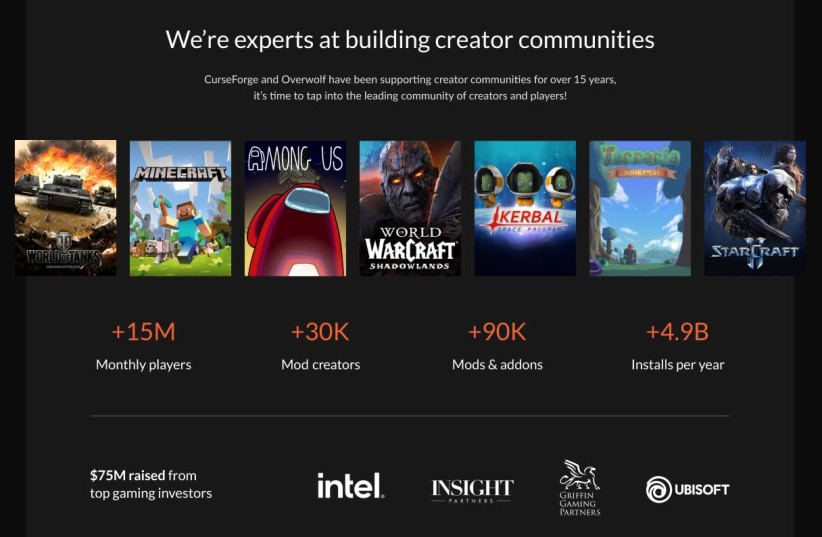At a time when all-in-one platforms are the go-to model in software services, Israeli tech companies have emerged as dominant players across multiple industries.
In times past, it was common for Israeli start-ups to come up with unique products that served specific markets, only to hit a ceiling as they were eventually subsumed into larger organizations. Interestingly, however, there has been a substantial shift in the software development landscape, and this has been particularly noticeable here in Israel in recent years.
Where once our tech companies sought to serve niche markets, now they are widening their bases, engineering all-in-one software solutions that boast multitudes of useful integrations – and this model has quickly become the only way to go. For Israeli start-ups, it’s an exciting time, both in terms of present success and future possibilities.
One tech leader who recognizes the momentum behind this trend is Yevgeny Dibrov. Co-founder and CEO of Armis Security, his company provides asset visibility and a security platform designed to address threats associated with interconnected assets. The company’s valuation recently reached $3.4 billion, and its success is in no small part due to the foresight of its ownership.
Dibrov recently gave his opinion on the trend toward unified software solutions, outlining the problems associated with trying to offer a single specific service.
“We are approaching an era where there will be no room for niche companies that provide a small solution,” he said, “but rather platform companies that provide complete solutions to all the needs of the organization. It is not possible for the factory to have one cyber solution and the enterprise computer systems to have a completely different computer system.”
Dibrov’s words resonate because they speak to an important truth. The tech industry is fast becoming a hostile environment for start-ups that provide single-purpose services. This is not just due to the potential for acquisition, but the general proliferation of larger platforms and the shift in client priorities.
The fact of the matter is that with so many business operations relying on tech, companies can quickly end up with a multitude of different software solutions to manage. The prospect of handling all these applications is as impractical as it is daunting, and customers are instead opting to choose platforms that integrate multiple software tools to create a cohesive, user-friendly whole.
OF COURSE, the trend toward broader platforms is by no means confined to the security sector. Sale is an area where integrated software solutions have quickly become a core part of how companies do business, and Israel also boasts a prominent presence in this field.
DealHub is an Israeli tech company that provides a revenue amplification platform that combines applications such as CPQ, contract life cycle management and analytics tools into a unified sales solution. The organization has achieved success due to the end-to-end nature of how its platform works.
Having recently generated funding to expand its operations further, co-founder and CEO Eyal Elbahary gave a statement, speaking about the need for businesses to avoid disjointed sales functions.
“Yesterday’s siloed sales tools no longer cut it in the new work-from-anywhere era,” Elbahary said. “Sales has undergone the largest disruption it has ever seen. Not only have sales teams needed to adapt to more sophisticated and informed buyers, but remote selling and digital transformation have compelled them to evolve the traditional sales process into a unique human-to-human interaction.”
This statement speaks to the experience of modern sales professionals, whose work simply doesn’t allow for the inefficiencies of siloed functions.
In such a competitive climate, users feel that their sales tools need to be integrated into comprehensive platforms if they are to extract true value from them. Israeli tech recognizes this fact, and the advent of the all-in-one model is evidence of this.
However, while we can get valuable insight from Israeli start-ups who have already achieved massive success, it’s equally fascinating to look to the future at who the tech titans of tomorrow might be.
INTERESTINGLY, one of Israel’s most promising start-ups is operating in the gaming sphere.
Which start-up is operating in gaming?
Overwolf was founded by Uri Marchand, Gil Or, Alon Rabinowitz and Nir Finkelstein, and has been tipped to become one of the next in a long line of Israeli tech unicorns. The company provides an all-in-one platform for third-party developers to build video game extensions, which it offers through its proprietary app store.
Moreover, Overwolf recently purchased UK game monetization company Tebex for $29 million, expanding its services to allow users to generate income by running private game servers. It would seem the company’s ambition is to create a comprehensive software platform for game creation and monetization.
In a recent interview, Marchand, the company’s CEO, spoke about the benefits clients can get from such a platform. “Services like QA and testing by pro gamers, technical support, development resources and marketing solutions, allow creators to solely focus on building the best app they can. In only a few weeks, creators are able to build and publish a high-quality app, share it with millions of gamers, and turn a hobby into a lucrative business.”
The implications of Marchand’s words are considerable, as he posits a scenario where a single unified platform provides a structure within which creators can develop, publish and monetize their creators independently.
This speaks to the latent potential of comprehensive software platforms: through power integration, they might expand to transcend their current status as tools, creating fully-fledged ecosystems of their own.
With so many of our daily operations relying on tech nowadays, we have begun to move away from single-purpose solutions in favor of more cohesive options. Consequently, a shift of seismic proportion has started to take place across the global tech industry – and in many ways, Israel can be considered ground zero.
Where once the growth of Israeli tech companies was markedly fragile and susceptible to circumstance, now they are growing laterally and expansively, establishing broad, stable bases that galvanize them and make them impervious to the fickle winds of change. Through the development of unified, all-in-one software platforms, Israeli start-ups have given themselves a platform for future development – and it’s exciting to ponder what the future holds.
The writer is a marketing consultant for several Israeli VCs and is a member of the Forbes Business Council.


